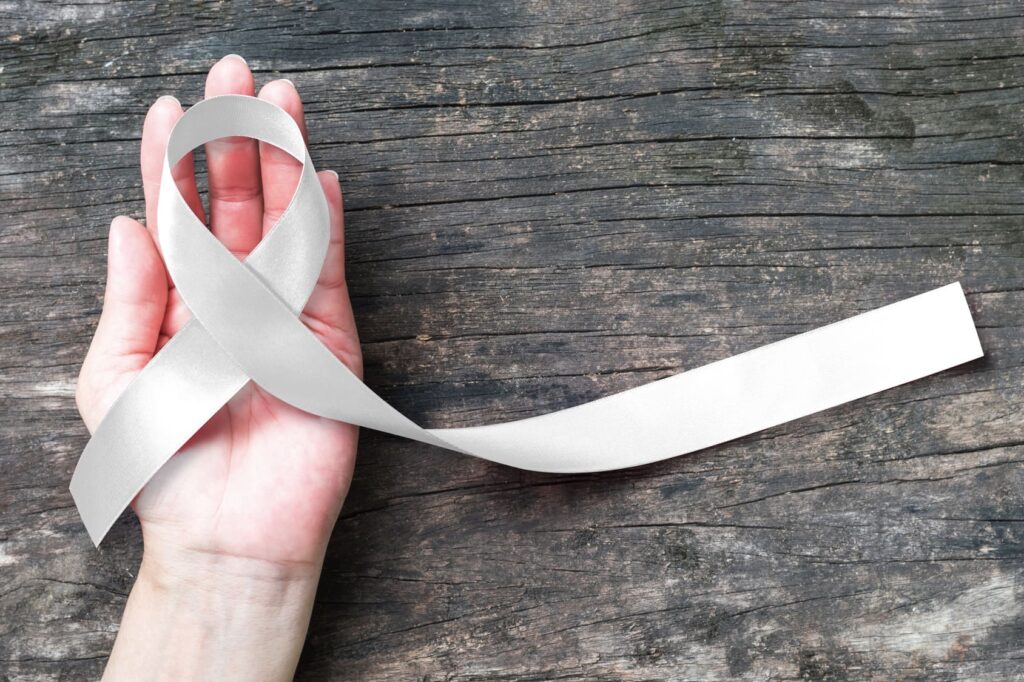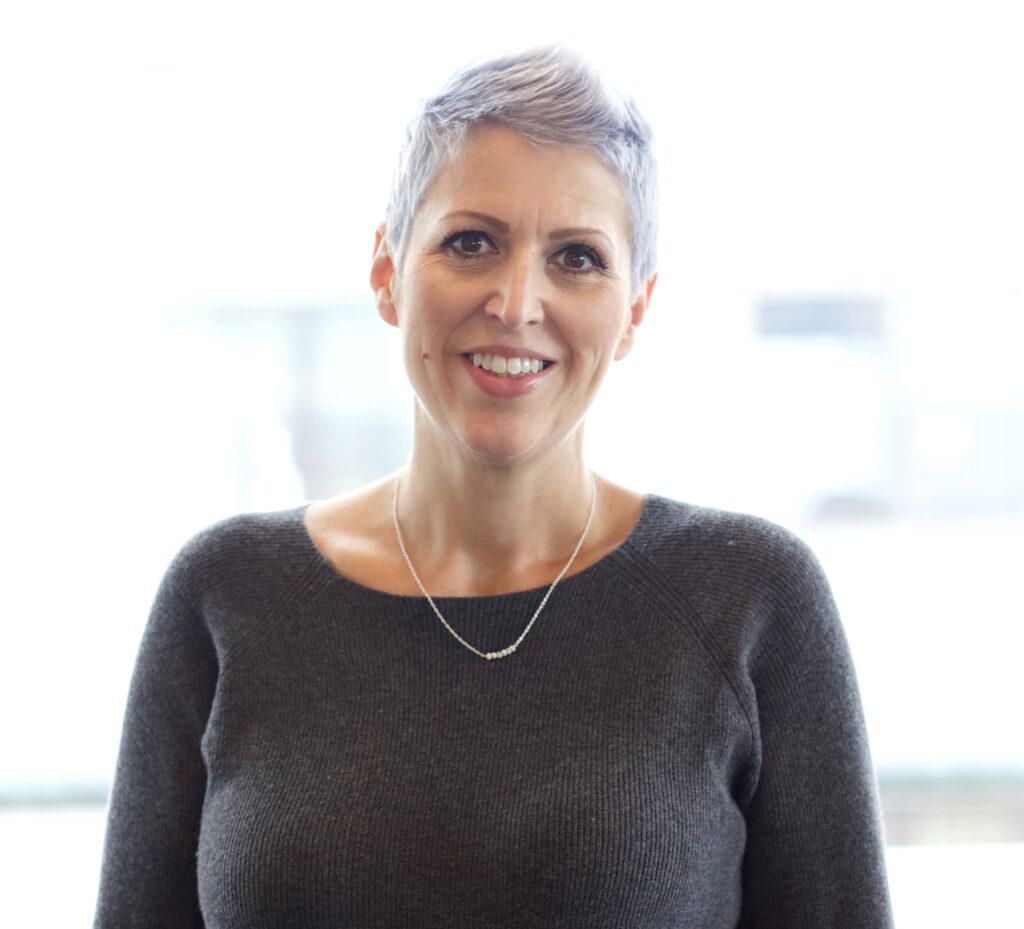Heather Von St. James is an 11-year survivor of malignant pleural mesothelioma. Heather encountered many unexpected challenges after defeating cancer and outliving her original prognosis of just 15 months to live. She experienced uncertainty of how to rebuild her life after losing her career and left lung to treatment. She faced unease about a future she never planned alongside her husband and daughter, Lily. And in the wake of survivorship, she uncovered debilitating mental health symptoms.

For years following her remission, Heather struggled with anxiety and trauma: “I tried not to think about the cancer coming back, but it was always there,” James wrote. “Those first few years came with follow-up appointments and a new word entered my vocabulary: ‘scanxiety.’ For the week or two leading up to those scans, I was always beside myself.”
Heather’s experience is not unique, as those who recover from cancer will often have lingering anxiety for years to come. Surviving cancer is a traumatic event: You live in fear that you might not survive. You worry about your family. You lose your independence. You watch as your body weakens and your physical appearance declines.
In fact, cancer survivors are more than twice as likely to have mental health problems compared to adults without cancer. Even after recovering from this horrible disease, their fight for health isn’t over. “Anxiety is a persistent problem long after the cancer has been diagnosed,” said Dr. Alex J. Mitchell to the New York Times. Mitchell is the lead author of a study documenting high levels of anxiety among cancer survivors. His research shows that even years after being declared “cancer-free,” survivors are at a significantly increased risk for suicidal ideation.
It’s possible that suicidal ideation can happen even for survivors who aren’t experiencing depression or other mental health symptoms. Therefore, all cancer survivors should seek mental health support—even if they aren’t experiencing symptoms. While they may be tired of doctors and diagnoses, seeking out mental health care is essential for this population.

Heather Von St. James
Prioritizing Mental Health
After several years of trying to cope on her own, Heather sought help to manage her mental health. While working with a counselor specializing in post-cancer care, Heather received a diagnosis of PTSD and anxiety. “I learned how to recognize my triggers and the importance of asking for help. My husband, who has dealt with his own depression, gave me a safe place to go when the anxiety tried to take over.”
Heather now raises awareness not only for mesothelioma, but also for cancer survivors’ mental health. She speaks to end stigma and reach those who may need support, showing them that they’re not alone and that help is available. Just because someone’s cancer is gone, does not mean they’re mentally okay.
On September 26, Mesothelioma Awareness Day, let’s embrace Heather’s mission to raise mental health awareness among the cancer community.
Laura Greenstein is communication coordinator at NAMI.

